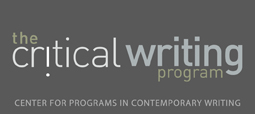Penn Professors on Writing in History
Dr. Benjamin Nathans

About the Professor
Benjamin Nathans is the Ronald S. Lauder Endowed Term Associate Professor of History. His areas of specialty are modern Russian and Soviet history, modern Jewish history, the history of human rights, and the history of nationalism.
For more about Dr. Nathans, please visit his Faculty Page.
Writing Tips
Nathans recommends that students work on developing their own voice, which "takes a long time and [is] never a fully finished process." He also suggests that students identify the genre of their assignment, so that they can adjust their style accordingly. Additionally, he encourages students to read their drafts aloud before submitting them, for this practice helps to avoid stilted writing. He stresses the importance of being a self-editor, gaining "distance and perspective on your own prose" so that you can better evaluate and refine the presentation of your ideas.
Important Criteria for Student Writing
Professor Nathans points to three important criteria in student (and indeed, his own) writing: lucidity, precision, and elegance. He values highly lucid prose that does not take two or three readings to understand. Precision, to Dr. Nathans, means using language with a high degree of accuracy and "not leaving any unintended ambiguity." Elegant prose is efficient and well-crafted, and often employs interesting turns of phrase. Ideas are, however, first and foremost; a student paper should focus on having strong ideas and a solid argument before concerning itself with elegance and style.
Personal Writing Process
Writing is a deeply personal process for Professor Nathans. He believes that writing for a popular audience has helped him to hone his own voice, and finds that the goal of writing in history is to "seamlessly weave together argumentation and narrative." He writes slowly, preferring to get things "just right" before he moves on. He begins with a very rough outline before starting, which "inevitably bears little resemblance to the final product," and usually begins writing before his research is finished.
Nathans writes both articles and books. In his more recent books, he has attempted to combine a conversational narrative with an argument.
Exemplary Authors
Dr. Nathans feels he could name an outstanding author in "every subfield of history." He has modeled his own writing after that of C. Vann Woodward, historian of the American South, Edmund Morgan, historian of the Puritans, and Yosef Yerushalmi, a Jewish intellectual historian.
© 2013-2014 The University of Pennsylvania
